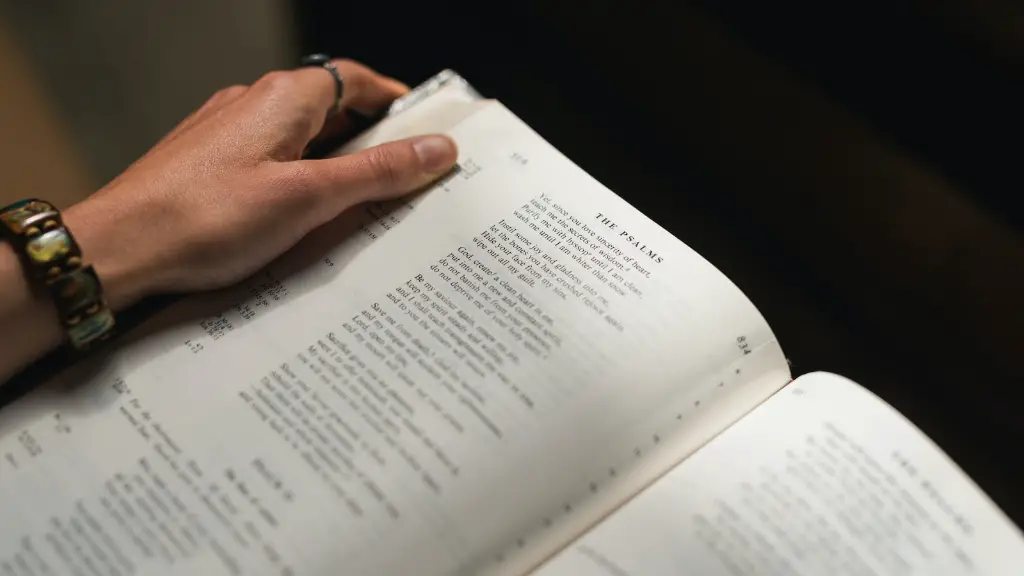Background Information
In Sir Philip Sidney’s An Apology for Poetry, Sidney defend poetry by offering a theological justification. In some ways, this defence echoes the Aristotelian understanding of poetry’s role in shaping its readers. Sidney offers a unified theory of poetry which explains each type of poetic form and its function. Sidney ultimately argues that poetry is both philosophical and moral in nature due to its ability to move the soul.
Arguments
Sidney’s main defence of poetry is that poetry can move the soul to righteousness. According to Sidney, poetry can do this through its imitation and its expression of philosophy. Sidney also argues that poetry is a necessary art since it can help people understand difficult concepts more easily. This is partly due to the use of metaphors and other figurative language which can elucidate difficult ideas.
Sidney’s defence of poetry goes beyond these arguments, however. He argues that poetry is integrative, contributing to our understanding of the natural and spiritual worlds. He also argues that poetry is cathartic, providing emotional relief and a way to process difficult emotions. Finally, he defends poetry by arguing that it evokes strong emotions which can lead to better moral behaviour.
Relevance Today
Today we can still see the applicability of Sidney’s defence of poetry. Poetry continues to provide emotional relief, and its ability to communicate difficult ideas in simple terms remains useful. Poetry can still be used for its educational value, and its ability to move people still holds true.
Furthermore, in our increasingly digital world, poetry offers a much-needed counterpoint. As our lives become ever-more influenced by technology and data-driven decisions, poetry provides an emotional, human-centred alternative. In a world where facts, figures and algorithms increasingly dictate our lives, poetry offers an important reminder that emotion, intuition and imagination still remain invaluable.
Point Of View Of Experts
New digital technologies have also opened up new ways to experience and appreciate poetry. Some experts argue that digital technologies such as machine learning, artificial intelligence, and natural language processing will revolutionise how we view poetry. For example, natural language processing can be used to uncover hidden poetic structures, while machine learning and artificial intelligence can be used to generate new creative works.
Many experts are also optimistic about the future of poetry in education. In contrast to the past, where poetry was seen as a staple of the curriculum, poetry is now seen as a valuable, relevant, and engaging tool for teaching students. Studies show that poetry can spark creativity and critical thinking, helping students make connections between concepts and develop a greater understanding of the world around them.
Analysis
Sidney’s defence of poetry still holds true despite changes in technology and in education. His insight is that poetry is an emotional, imaginative and philosophical art form, capable of influencing people and allowing them to connect to the natural and spiritual worlds. In a world which is increasingly dominated by data and facts, poetry offers an alternative, offering insight and a human-centred perspective.
The digital revolution has opened up new ways of experiencing and appreciating poetry. Technologies such as artificial intelligence and machine learning can be used to uncover poetic structures and create new creative works. Poetry is also gaining traction in classrooms and educational settings, proving to be an engaging way to spark creativity and critical thinking among students.
Application
Agreeing with Sidney’s arguments, poetry can still be used to bring together people with different backgrounds and life experiences together. By bringing together different perspectives and opinions, poetry can be used to bridge the divide between cultures and beliefs. Furthermore, its understanding of emotion can be used to create positive social change.
In terms of its educational applications, poetry can also be used to teach wider concepts such as critical thinking, problem-solving, and creativity. Poetry can be used to reflect on events in the world around us, helping students to gain a better understanding of the complexities of life and the world. Poetry can also be used to spark discussions on topics such as climate change, social justice, and inequality.
Effect On Society
The effect of poetry on society has been immense and it is probably one of the most effective forms of art in terms of its ability to move people to action and inspire change. Poetry has been used to challenge and confront current issues, inspire movements and spark debates. This is seen in the numerous examples of socially engaged poetry, with poets such as Langston Hughes, Maya Angelou, and Nikki Giovanni writing powerful, emotionally charged poetry which has inspired social and political change.
Poetry has also been used to bridge cultural divides, and its ability to express ideas simply has made it an effective tool for communicating difficult topics to a wider audience. As Langston Hughes once said, “Hold fast to dreams, for if dreams die, life is a broken-winged bird that cannot fly”. Poetry can help us reimagine what is possible and inspire us to strive for a better world.
Influence On The Arts
Sidney’s defence of poetry has had a lasting influence on the arts. It can be seen in the way that modern poets have embraced the emotional and spiritual elements of poetry. Many poets have taken Sidney’s ideas and used them to explore difficult topics in powerful and moving ways. Poetry’s influence can also be seen in other forms of art such as music, dance and theatre. These art forms often incorporate the types of emotions and feelings which can be found in poetry.
Beyond the arts, Sidney’s defence of poetry has also had an influence in other fields such as education and marketing. In education, poetry has been used to teach critical thinking and spark creativity, while in marketing, it has been used to create emotionally compelling messages which engage customers. Ultimately, Sidney’s defence of poetry is still relevant today and its influence can be seen in a variety of fields.
Significance Of Poetry Today
It is clear that Sidney’s defence of poetry still has relevance today. Not only does poetry still evoke strong emotions, but its ability to simplify complex topics and bridge the divide between cultures is still highly valuable. Furthermore, its use in the arts, education and marketing shows just how significant it can be.
Given the increasing importance of technology and data-driven decisions, poetry can also provide an important alternative. In a world where algorithms increasingly dictate our lives, poetry offers an imaginative, human-centred alternative. In this context, Sidney’s defence of poetry is even more relevant.
Conclusion
In conclusion, Sidney’s defence of poetry is still relevant today. Poetry can still evoke strong emotions, impart philosophical knowledge, and bridge the divide between cultures. Furthermore, in a world which is becoming ever more dominated by technology and data-driven decisions, poetry provides an important alternative. It is clear that Sidney’s defence of poetry is as valuable today as it was in the 16th century.


